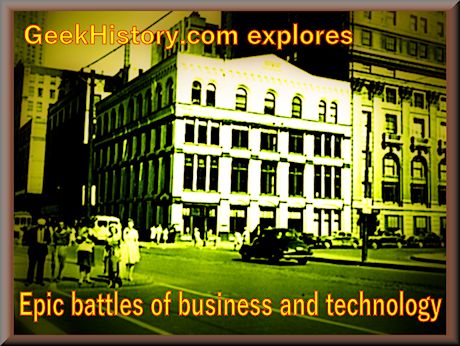 In the epic battles where business and technology mix, one of the most famous fights of the Industrial Age has been dubbed "The War of Currents." The war was between the famous inventor Thomas Edison who backed DC (direct current) as the preferred method to delivery electricity to your home, and George Westinghouse who backed AC (alternating current).
In the epic battles where business and technology mix, one of the most famous fights of the Industrial Age has been dubbed "The War of Currents." The war was between the famous inventor Thomas Edison who backed DC (direct current) as the preferred method to delivery electricity to your home, and George Westinghouse who backed AC (alternating current).
There are two other epic battles of business and technology that stand out as similar to the War of Currents, the war over television in the 1930s, and the browser wars of the 1990s.
The War of Currents
In the 1890s the War of Currents was a business and technology battle that started between Thomas Edison and George Westinghouse. Many history books and website tout the battle as Edison versus Tesla. The cult of Tesla has glorified Nikola Tesla to be the ultimate inventor of AC power distribution. Tesla was a genius, and a major contributor to AC Power distribution, but Tesla was a part of a team put together by George Westinghouse.
Tesla and Westinghouse made a good team. In areas where Tesla failed, Westinghouse excelled. Nikola Tesla was a visionary with many ideas, he could see the problems and solve them in his head. Westinghouse was a systems thinker. Westinghouse purchased various patents from European inventors Gaulard and Gibbs, and then purchased patents from Tesla, to build a system to that would distribute AC power to American homes.
Maybe Tesla understood his weakness, as he stated, "George Westinghouse was, in my opinion, the only man on this globe who could take my alternating-current system under the circumstances then existing and win the battle against prejudice and money power. He was one of the world's true noblemen, of whom America may well be proud and to whom humanity owes an immense debt of gratitude."
When Tesla was a forgotten man living in New York hotels in the final years of his life, it was Westinghouse that was picking up the tab for his room and board.